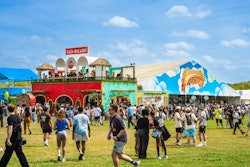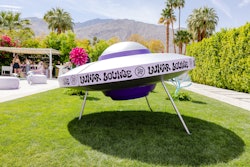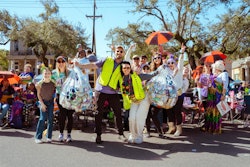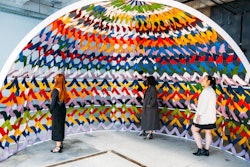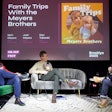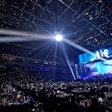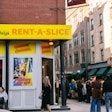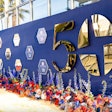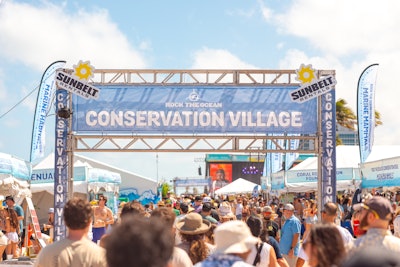
FORT LAUDERDALE, FLA.—Last weekend, attendees of the Tortuga Music Festival not only enjoyed performances by the likes of Jelly Roll, Keith Urban, and Luke Combs; they also participated in a larger movement for ocean conservation. Held on Fort Lauderdale Beach during the critical sea turtle nesting season, the festival integrates live music with environmental activism, reflecting its unique commitment to marine preservation.
Established in 2013 by Chris Stacey—a lifelong boater, fisherman, and diver, and the founder of the Rock the Ocean Foundation—Tortuga is designed to do more than entertain. It serves as a platform for education and advocacy, primarily through the Conservation Village, powered by Sunbelt Rentals, where marine scientists and conservationists share their important work with thousands of festivalgoers.
"From the start, Tortuga Music Festival has always included a conservation component," Stacey explains. "I always say that the scientists who join us are the rock stars of conservation. While we have big stars on our stage, in Conservation Village, we showcase the rock stars of marine science. I'm no scientist, but I can throw a pretty good party—so let's give these geniuses a platform to expose their work that they couldn't otherwise get through normal channels."
This year, over 30 nonprofits, NGOs, and universities with marine biology programs joined the village; they were chosen from around 300 applicants. "For many, it’s their largest single outreach event of the year," Stacey notes. "They can engage with 30,000 fans a day in such a fun way."  Tortuga was the first major music festival to ban plastic water bottles—and with the help of Sunbelt Rentals, has significantly expanded its sustainability efforts year after year.Photo: Courtesy of Live Nation
Tortuga was the first major music festival to ban plastic water bottles—and with the help of Sunbelt Rentals, has significantly expanded its sustainability efforts year after year.Photo: Courtesy of Live Nation
For an event so focused on conservation, it's no surprise that the team leans into some pretty extensive sustainability initiatives. "We're producing this giant event on a protected sea turtle nesting beach to celebrate and help save the world's oceans. I thought it would be highly hypocritical to not make this as sustainable as possible!" says Stacey.
These sustainability efforts have been greatly enhanced through an expanded partnership with tool and equipment rental company Sunbelt Rentals. While Sunbelt has been collaborating on the event for the last 11 years, this year, the brand became the name-in-title sponsor of the Conservation Village. "Initially, I was hesitant to have anyone involved in Conservation Village because it's the precious gemstone of what we do," Stacey admits. "But once I sat with Sunbelt and learned all their sustainability initiatives and how they could be applied at Tortuga, it was a perfect fit. We are already the most sustainable large-scale music festival on the planet—and Sunbelt helped us take that initiative to an even higher level this year."
Karen Beadle, Sunbelt Rentals' senior vice president of sustainability, describes the title sponsorship as a natural fit. "Our team, and the Live Nation and Tortuga teams, are made up of really dedicated, passionate people who are interested in raising awareness, lowering the environmental footprint, and ultimately just pulling off a really phenomenal event," she says.  "Sunbelt has an ability to scale across events of all sizes with our solutions—including sustainable equipment—and it's one of the benefits of working with us," says Beadle. "We're all about partnership, and Tortuga has been an amazing partner. We look forward to partnering with them for many years to come."Photo: Courtesy of Live Nation
"Sunbelt has an ability to scale across events of all sizes with our solutions—including sustainable equipment—and it's one of the benefits of working with us," says Beadle. "We're all about partnership, and Tortuga has been an amazing partner. We look forward to partnering with them for many years to come."Photo: Courtesy of Live Nation
For other event producers looking to be more sustainable, Stacey and Beadle offer some advice:
1. Lean on experienced event partners.
Stacey and his team work with events giant Live Nation to produce the festival, and this year also expanded their partnership with Sunbelt Rentals to help implement energy-efficient, environmentally friendly solutions throughout the space. These included a comprehensive suite of low-emission equipment, including Battery Energy Storage Systems (BESS) to reduce diesel generator usage; solar-powered light towers with zero emissions; amber lighting filters to prevent disorienting sea turtle hatchlings; and ground protection mats to preserve sand and nesting areas.The Sunbelt team has been investing in low- to zero-emissions equipment for quite a while—and that passion for sustainability, paired with their experience in the live event space, made them a good fit. "We're committed to sustainability and we understand the complexity of the live event space and how to develop customized solutions for our customers," Beadle explains. "It's not just equipment—it's expertise, it's coordination and a tailored approach for each event. It's really about working with a partner that can design a comprehensive, smarter, more efficient solution setup, which is ultimately what we're all about."
2. Make incremental changes every year.
"Being sustainable is not that hard!" points out Stacey, whose team is continuously working to improve their efforts year after year. "As an example, last year, we diverted 81.3% of the waste from this event from the landfill," he says, noting that when you hit 90%, you're officially certified as a zero-waste event. "So this year, we really worked to knock out that last 9%." In total, Tortuga's efforts have diverted more than 600 tons of waste from landfills.Sometimes, those changes can be as simple as choosing a different cup vendor. "We use hundreds of thousands of cups throughout the course of the weekend, and now we've switched to compostable serviceware," he says. "Now, we can take these items, send them to composting, and 10 short weeks later, they're literally turned into soil that we can donate back to local community gardens."  Since the festival takes place during sea turtle nesting season, the team applies for special permits, and extra precautions are taken to protect the wildlife. One of those is Sunbelt Rentals' amber lighting filters, which prevent disorienting sea turtle hatchlings.Photo: Courtesy of Live Nation
Since the festival takes place during sea turtle nesting season, the team applies for special permits, and extra precautions are taken to protect the wildlife. One of those is Sunbelt Rentals' amber lighting filters, which prevent disorienting sea turtle hatchlings.Photo: Courtesy of Live Nation
3. Let your attendees know what you're doing!
Throughout the event, Sunbelt Rentals displayed messaging highlighting the festival's dedication to environmental stewardship, leaning into recent Live Nation-conducted research that showed 70% of fans are more likely to support brands that align with their sustainability values. "It's a great opportunity for us to reinforce our actions at the event, and showcase visually the impact we can have through things like battery energy storage solutions and solar light towers," says Beadle."I compare our event's messaging to commercials during your favorite TV show," adds Stacey. "But just like when you watch your favorite TV show, by the end of it, you probably know all the words of that silly Pepsi jingle, or whatever it is. The messaging has to feel organic—we don't want it to be beating people over the head—but we do want them to come and enjoy their experience, and when they leave, maybe they leave just a little bit more educated about sustainable changes they can make in their daily lives."
4. Think through every aspect of what goes into producing an event.
Beyond the composable serviceware, Stacey and his team also thought through the entire event lifecycle, including how the production itself could be more eco-conscious. "For example, how many zip ties are used during the production of a music festival or any large-scale event? There are thousands—so this year, we started to implement reusable zip ties."Another example? "So many of the labor guys smoke, so we made little pocket ashtrays that we handed out for free to all the labor crew," Stacey says. "So instead of dropping the butts on the ground, we put them into these little pouches. Then they dump them in a recycling bin, and then we take that and send it off the recycling." (The pouches were also given to fans for free.)
"It's about taking what the beach looks like before the event—and making sure it looks the same way after," sums up Beadle.
5. Lean on your sponsors.
While implementing certain sustainable changes can somtimes be a bit more expensive, tap into sponsors to help, Stacey suggests. For the compostable cups, which cost slightly more than regular cups, he approached a sponsor about covering the costs. "They wanted to be a part of that messaging," he remembers.Beadle agrees that sponsoring events like this can be really appealing to brands. "The live event space is a key part of Sunbelt's business. By integrating the battery energy storage systems, the light towers, and other energy-efficient solutions, we're demonstrating how a rental equipment company can really meet customer-specific needs—and especially their sustainability needs," she says.




